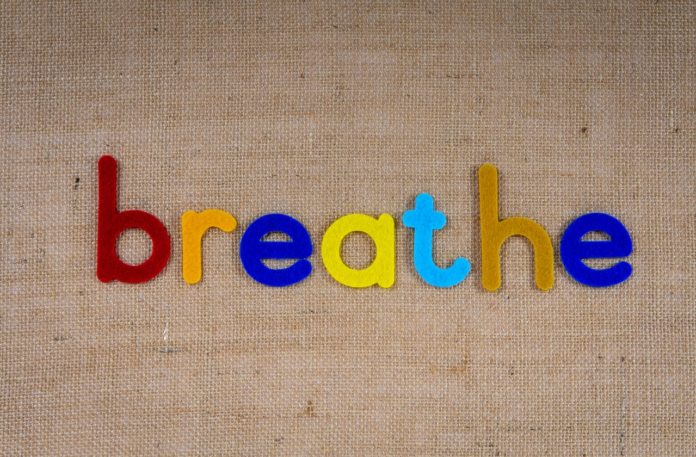Our lungs are vital for living a healthy life. We use them to inhale oxygen and exhale carbon dioxide. This crucial function sustains our body’s energy requirements and ability to function. And, to breathe in air, you need a pair of healthy lungs. Therefore, it is imperative to take good care of these organs.
Many people tend to focus on other aspects of health, such as physical fitness and heart health. However, lungs often get ignored in the process. Taking the lungs for granted can increase the risk of developing chronic conditions that lead to difficulty in breathing. Reduced oxygen levels can decrease your overall health and trigger premature aging of the organs. Therefore, it is best to act swiftly to preserve your lungs’ vitality. Listed below are some tips that may prove beneficial.
1. Avoid exposure to pollutants
The quality of the air you breathe can profoundly impact your lung health. Contaminants in the air trigger acute respiratory infections. Lung cancer, respiratory allergies, and COPD are outcomes of inhaling foul air. Avoid inhaling secondhand smoking and inhaling smog. Also, check indoor radon levels to reduce the risk of developing lung cancer. Some job sites also contain hazardous chemicals that are harmful to the lungs. Construction workers and military persons are at risk of developing diseases like pleural mesothelioma after prolonged exposure to asbestos microfibrils. To prevent such occurrences, wear appropriate safety equipment while on the job.
2. Stay hydrated
Drinking water is beneficial not just for the lungs but also to the body. Water helps in fighting mucus buildup. Drinking water thins the mucus secretions that naturally build up in your lungs throughout the day, making it easier to breathe and exchange gases. In addition to drinking plenty of water, steam can help to keep the airways moist.
3. Breathe in fresh air
Breathing fresh air helps replenish the lungs. It aids in the full expansion of the lungs and supports the cleansing function. When you exhale, you get rid of toxins from the body through the air passages. Moreover, fresh air contains more oxygen than indoor air. More oxygen causes blood vessels in your lungs to dilate, which aids cleaning and tissue healing while making it easier for the organs to exchange gases.
4. Engage in physical activity
Exercise boosts the lungs’ air capacity and enhances blood circulation. Breathing exercises such as diaphragmatic breathing, pursed-lip breathing can help improve your breathing patterns. Also, regular physical activity can assist people suffering from symptoms of lung diseases. Before changing your activity levels, seek advice from a doctor to ensure your exercise regimen is safe for you. You can gradually increase the time limit to increase your stamina. It will help you slow down aging and prognosis of chronic illnesses.
5. Add greenery to your house
Plants give off oxygen. So what better way to purify your indoor air quality? Because plants also have the innate ability to eliminate some toxins from the air, adding plants to your home improves air quality. Some plants act as natural air purifiers. Planting aloe vera, ferns, bamboo palms, snake plants, and peace lilies inside the house can help remove toxins from the air. Adding these plants is a cost-effective way to naturally filter out hazardous compounds like benzene and formaldehyde from your home.
6. Eat healthy food
Healthy food nurtures a healthy body. Changes in lifestyle, such as eating a nutritious diet, strengthen the lungs and prevent disease-related damage. Foods that reduce inflammation and dilate blood vessels are beneficial to the health of the lungs. For example, omega-3 in walnuts is good for strengthening the muscles of the lungs. Apples are high in quercetin, an anti-inflammatory compound that helps to reduce oxidative stress and infections. Also, a diet rich in Vitamins C, D, and proteins helps in the absorption of nutrients and repairs tissue damage. Vitamin A in eggs aids in the formation of new cells and the healing of damaged ones, which helps to improve lung tissue.
7. Avoid smoking
Smoking and chewing tobacco are harmful to the lungs and your overall health. Cigarette smoke can constrict the airways, making breathing harder. Excessive smoking can cause inflammation and swelling, leading to chronic bronchitis and COPD. The toxins present in the cigarette are known to have a deteriorating effect on your lungs. These toxins include tar, nicotine, and carbon monoxide. They cause mucus to build up inside the lungs and result in inflammation and irritation in the tissue. The mucus constricts the air lining making it harder to breathe. Not to mention, smoking also increases the risk of developing lung cancer. So quit smoking.
8. Laugh more
Aside from stress alleviation, there are numerous advantages of laughing. Laughter can give your cardiovascular, pulmonary, and respiratory systems a workout. When you laugh, the chest, abdominal, and diaphragm muscles relax. This makes the lungs work harder by forcing stale air out and allowing fresh air to enter deeper into the lungs. Laughing is a fantastic way to get your lungs to perform properly. It aids in expanding the alveoli, allowing more oxygen to enter the lungs.
Conclusion
You can maintain your lungs for the rest of your life by paying attention to the tips listed above. Ensure you’re up to date on your vaccinations and have taken all necessary precautions to avoid diseases that can be fatal. Do see your doctor if you experience dry coughing, chest pain, and irritation in your lungs for a long time.










